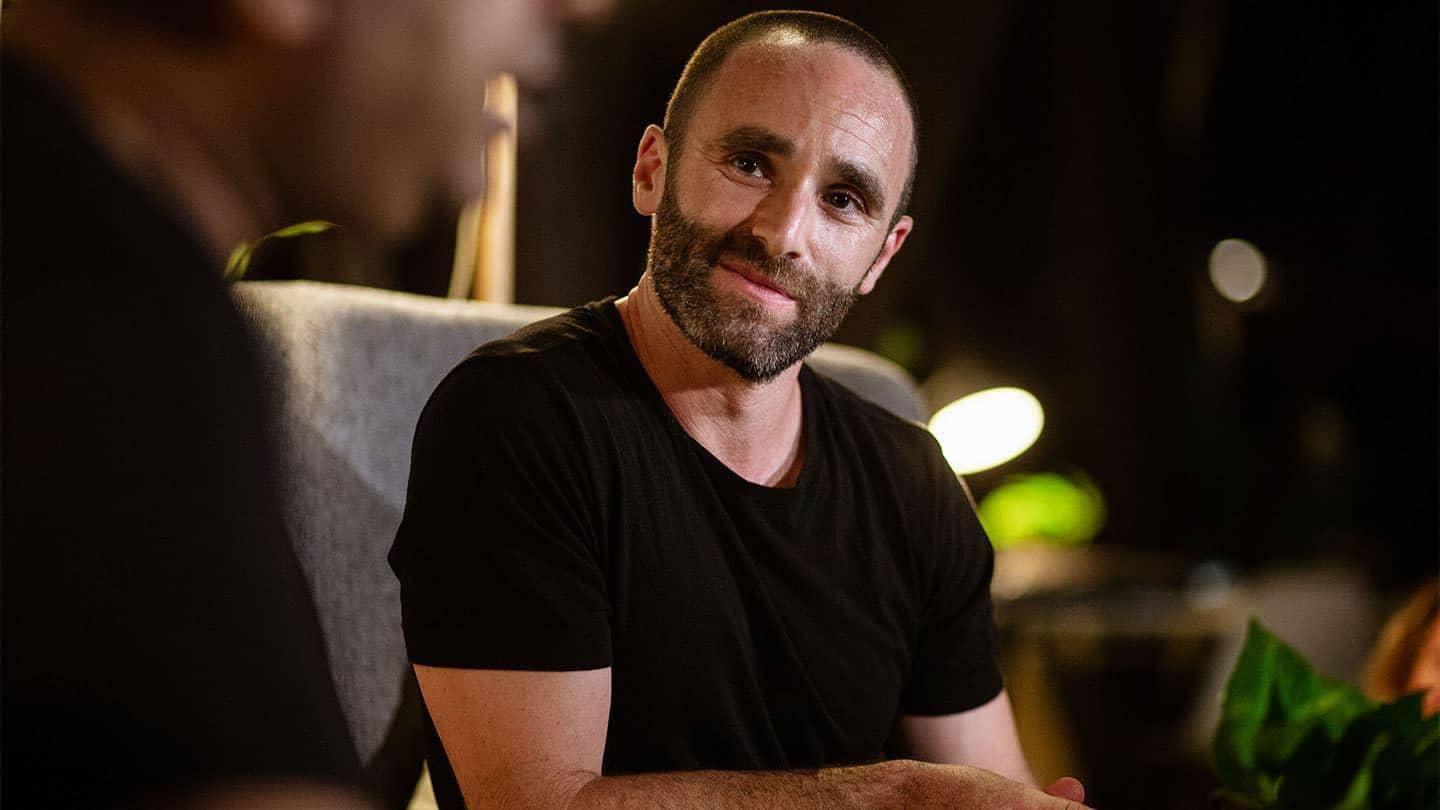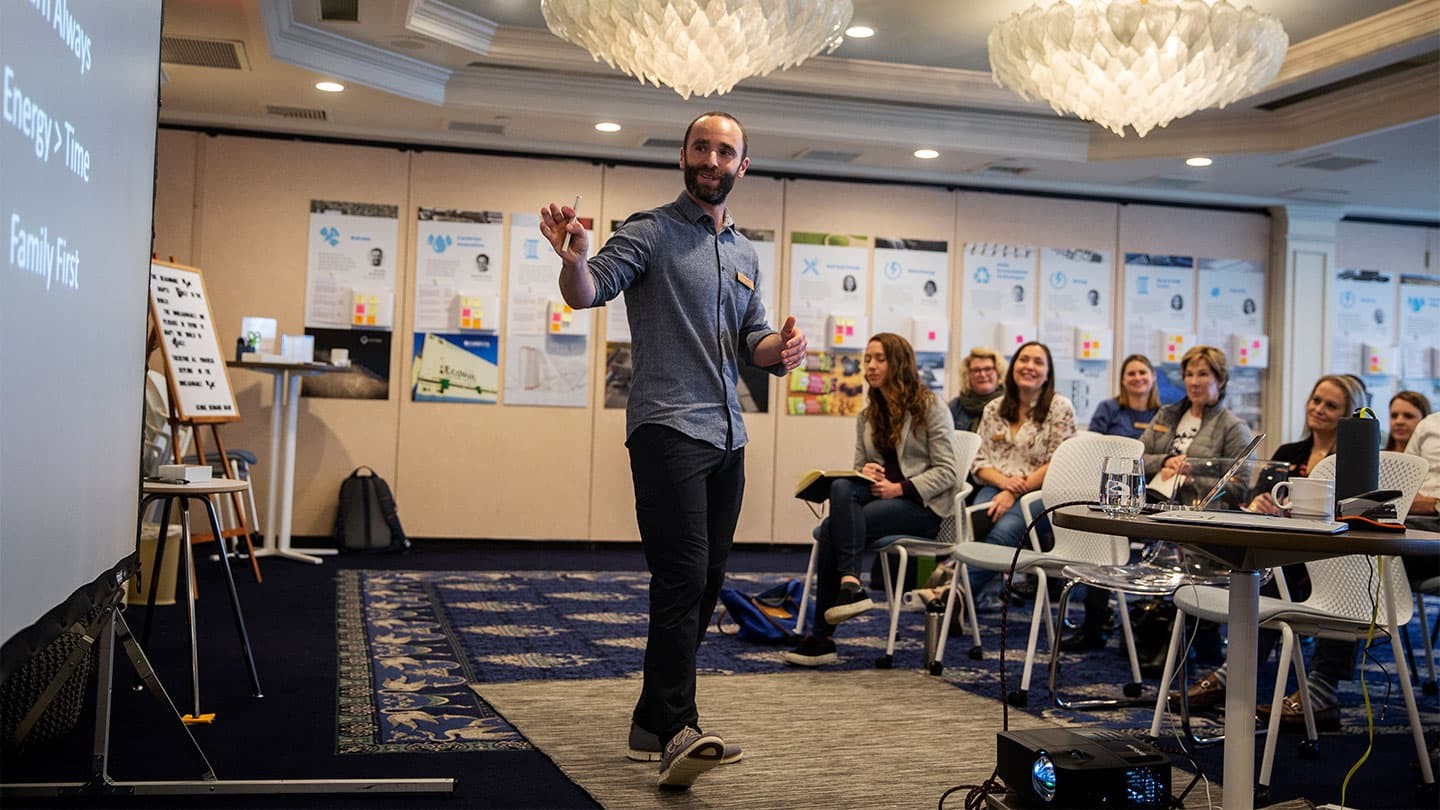
Culture
Leading Questions: Daniel Epstein
Daniel Epstein is the founder of Unreasonable Group, which partners with Barclays to support high-growth entrepreneurs in creating the jobs and solutions for future generations. Ahead of the 2019 Unreasonable Impact World Forum this week, we talk to him about his leadership philosophy, the best advice he’s been given, and the importance of humility in company culture.
What was your early work experience?
I worked for a house-cleaning business as a teenager. It was a really interesting job both during and in hindsight. Most of the employees at this company were from a prison-release programme, and then you had me – a 16-year-old kid from the suburbs. And they gave me all the worst jobs. I really got to hear their stories and realise how fortunate I was, and the luck I was born into.
I worked throughout middle school and high school, from when I was about 12, but my dad told this story that I don’t even recall from my first year of university, when working at a small biotechnology company in Colorado. Apparently I called my dad a month into the job and said, “I’m really enjoying it and love what they’re doing, but I’m probably not going to work for somebody ever again.” I was already thinking about what it would look like to start something with a blank slate and focus on culture from the outset. I never had any ‘career aspiration’ job. My ambition was always to be an entrepreneur.
What are the best ways for entrepreneurs to develop leadership skills?
If you want to learn how to ride a bike, you’re not going to read reports about how other people have ridden bikes. You’re going to get on it and pedal. You’ll fall over, get back up and go. And that’s how to learn leadership – wisdom comes from failures, and nowhere is that more true than with entrepreneurs. When you’re a first-time entrepreneur and you probably don’t have more expertise than incumbents in market, the only way to figure out a path is by doing it. Thinking is far less effective than doing in terms of learning business and leadership.

Unreasonable Group Founder Daniel Epstein
What do you think makes a good leader?
To use an American analogy, I see the aspiration of a lot of leaders as being a quarterback who leads their team to the championship. As a quarterback, you get the glory, but that’s not true leadership. True leadership is being the coach. As a coach, you have two jobs. The first is getting the best players in the world that you can afford on the field in the positions they’re best at. The second one is that you set the culture – where individually and collectively the team can do things they formerly thought were impossible.
That, to me, is great leadership. And it needs a paradoxical mix of confidence and humility. You need the confidence in your vision that says, ‘We can do this’, but also enough humility to know that anything a leader achieves comes through their team. In the really great companies, humility is at the forefront.
Which colleague has had the most influence on your business life?
One of the people I’ve learned the most from is George Kembel, the Director and Co-Founder of the d.school at Stanford and a serial entrepreneur from Silicon Valley. He and I ran a programme together called Unreasonable at Sea, where we had a ship that sailed round the world with eleven technology companies, helping them scale into new international markets. A reason for admiring George was he never said the word “I”, he only ever said “we”. He attributes that to having an identical twin and going through life as a twin, but he’s taken that into how he leads. I haven’t seen a leader who unearths creative potential in their teammates better than George. He genuinely believes that no matter how smart one individual is, a team of people in the right culture is smarter.
What’s the best piece of career advice you’ve been given?
The word ‘career’ doesn’t really resonate with me, but there’s a quote along the lines of “ask not what the world needs, ask what makes you come alive, because what the world needs is more people who come alive”. Anybody who is looking at a career shift or creating a company should think about that. And hopefully we stumble across work that makes us come alive where also the product or service being put out is something the world desperately needs. Aim for that intersection, and be relentless about it.
Culture is more important than strategy. If you can create an incredible culture and steer the ship, then greatness can come out of it. So, focus on culture and go after something you believe in.
Has your career progressed in the way you expected?
Yes and no. If you asked me when I was 18 whether I would be doing this, then I would have said no – I’d be running companies on the frontline. When I started Unreasonable, I thought I’d run it for a couple of years then go back to running my own company rather than a company that helped companies. But then I got addicted to the idea of leveraging positive impact. As an entrepreneur, if I’m really lucky one or two of the companies I start in my lifetime might be successful and have a positive impact on 10 million people. Or we can help companies like Zero Mass Water,in our Unreasonable Impact portfolio. They are pulling drinking water from the humidity in the air using no electricity, and bringing clean drinking water to people – that’s a different velocity of change and type of impact. And it can be made through multiple companies. I see myself doing this for the rest of my life. There’s just so much leveraged impact we can have.
How do you unwind?
My partner and I have an exercise routine – a high-intensity crossfit which is so hard you can’t think about anything else. Being lucky enough to live in Colorado, I love trail running, backcountry skiing and mountain biking. Food and hikes and time with friends. I do like to disconnect digitally and recharge in nature, getting back into the hills.
Can you recommend a book?
Summer Meditations by Václav Havel. He was a poet and ended up almost by accident leading the Velvet Revolution in Czechoslovakia, and then became the president. Summer Meditations is based on his first summer leading his country, and talking about the deep values of leadership and humility. I’ve read that book multiple times cover to cover. It’s very practical and pragmatic and contains a huge amount of humility.